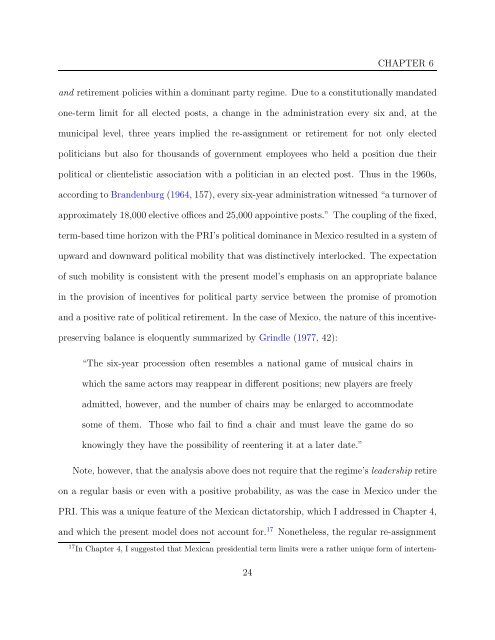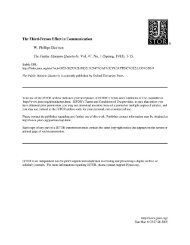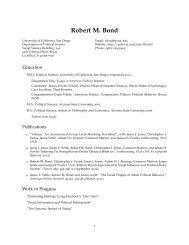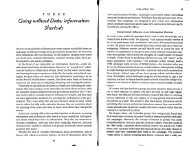Chapter 6 Why Authoritarian Parties? The Regime Party as an ...
Chapter 6 Why Authoritarian Parties? The Regime Party as an ...
Chapter 6 Why Authoritarian Parties? The Regime Party as an ...
You also want an ePaper? Increase the reach of your titles
YUMPU automatically turns print PDFs into web optimized ePapers that Google loves.
CHAPTER 6<br />
<strong>an</strong>d retirement policies within a domin<strong>an</strong>t party regime. Due to a constitutionally m<strong>an</strong>dated<br />
one-term limit for all elected posts, a ch<strong>an</strong>ge in the administration every six <strong>an</strong>d, at the<br />
municipal level, three years implied the re-<strong>as</strong>signment or retirement for not only elected<br />
politici<strong>an</strong>s but also for thous<strong>an</strong>ds of government employees who held a position due their<br />
political or clientelistic <strong>as</strong>sociation with a politici<strong>an</strong> in <strong>an</strong> elected post. Thus in the 1960s,<br />
accordingtoBr<strong>an</strong>denburg(1964,157), everysix-year administrationwitnessed “aturnoverof<br />
approximately 18,000elective offices<strong>an</strong>d25,000appointive posts.” <strong>The</strong>coupling ofthefixed,<br />
term-b<strong>as</strong>edtimehorizonwiththePRI’s politicaldomin<strong>an</strong>ce inMexico resulted in<strong>as</strong>ystem of<br />
upward <strong>an</strong>d downward political mobility that w<strong>as</strong> distinctively interlocked. <strong>The</strong> expectation<br />
of such mobility is consistent with the present model’s emph<strong>as</strong>is on <strong>an</strong> appropriate bal<strong>an</strong>ce<br />
in the provision of incentives for political party service between the promise of promotion<br />
<strong>an</strong>d a positive rate of political retirement. In the c<strong>as</strong>e of Mexico, the nature of this incentive-<br />
preserving bal<strong>an</strong>ce is eloquently summarized by Grindle (1977, 42):<br />
“<strong>The</strong> six-year procession often resembles a national game of musical chairs in<br />
which the same actors may reappear in different positions; new players are freely<br />
admitted, however, <strong>an</strong>d the number of chairs may be enlarged to accommodate<br />
some of them. Those who fail to find a chair <strong>an</strong>d must leave the game do so<br />
knowingly they have the possibility of reentering it at a later date.”<br />
Note, however, thatthe<strong>an</strong>alysis above doesnotrequire that theregime’s leadership retire<br />
on a regular b<strong>as</strong>is or even with a positive probability, <strong>as</strong> w<strong>as</strong> the c<strong>as</strong>e in Mexico under the<br />
PRI. This w<strong>as</strong> a unique feature of the Mexic<strong>an</strong> dictatorship, which I addressed in <strong>Chapter</strong> 4,<br />
<strong>an</strong>d which the present model does not account for. 17 Nonetheless, the regular re-<strong>as</strong>signment<br />
17 In <strong>Chapter</strong> 4, I suggested that Mexic<strong>an</strong> presidential term limits were a rather unique form of intertem-<br />
24











